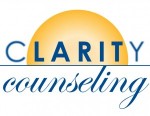What is Sexual addiction?
Sexual addiction is defined as any sexually-related, compulsive behavior that interferes with normal living and causes severe stress on family, friends, loved ones, and one’s work environment.
Sexual addiction has also been called hypersexuality, sexual dependency and sexual compulsivity. By any name, it is a compulsive behavior that completely dominates the addict’s life. Sexual addicts make sex a priority over family, friends, and work. Sex becomes the governing principle of an addict’s life. They are willing to sacrifice what they cherish most in order to preserve and continue their unhealthy behavior.
No single behavior pattern defines sexual addiction. These behaviors can take control of addicts’ lives and become unmanageable. Common behaviors include, but are not limited to compulsive masturbation, compulsive heterosexual and homosexual relationships, pornography, prostitution, exhibitionism, voyeurism, indecent phone calls, and anonymous sexual encounters. Even the healthiest. Clarity Counseling center offers a weekly men’s sexual compulsivity support group. Please call for details.
To take a screening test go to sexhelp.com
The Sexual Addiction Screening Test (SAST) is designed to assist in the assessment sexually compulsive behavior which may indicate the presence of sex addiction.The SAST is an initial assessment test for people with potentially addictive behaviors. It provides a profile of responses that help distinguish between addictive and non-addictive behaviors. It was developed in cooperation with hospitals, treatment programs, private therapists and community groups. This is a free test, used in diagnosing sexual addiction.
The Sexual Addiction Risk Assessment (SARA)
Is an anonymous and private sex addiction self assessment; it compares your answers with thousands of other sex addicts who are preceded you in treatment. Thus, you have the benefit of comparing your life or the lives of others who share the same problem. The Sexual Addiction Risk Assessment (SARA) consists of 88 questions, which take approximately 25 minutes to finish. Upon completion, you will receive a detailed, personalized 23-page report to help you determine your next course of action. Please note that fees do apply for this assessment test.
Is there any help for partners of sex addicts?
Partners of sexual addicts, like partners of alcoholics, can also benefit from counseling and support groups. Discovering your loved one is a sex addict can be a very traumatic experience for family members. Inpatient and outpatient programs, counseling, and support groups are all available to help them regain control of their lives and support the recovery of their partner. Clarity counseling center offers a partner support group every other Monday afternoon. Call for details.
You may also visit http://www.posarc.com/partners/expect , http://www.cosa-recovery.org ,https://www.sanon.org
What are some reading resources ?
Out of the Shadows: Understanding Sexual Addiction
by Patrick Carnes, Ph.D.
This is the landmark book introducing and legitimizing sexual behaviors and sexual fantasies as an addictive disease. Dr. Carnes proposes three levels of sexual addiction, describes the addiction cycle and its progression, and presents the faulty core beliefs of the addict and the coaddict and their healthy counterparts.
In the Shadows of the Net: Breaking Free of Compulsive Online Sexual Behavior by Patrick Carnes, David Delmonico, and Elizabeth Griffin. Applies Carnes’ theories to the growing phenomenon of cybersex addiction.
Mending a Shattered Heart
By Dr. Stephanie Carnes
When your partner betrays, what are the first steps to picking up the pieces of your shattered heart?
Many unsuspecting people wake up every day to discover their loved one, the one person whom they are supposed to trust completely, has been living a life of lies and deceit because they suffer from a disease–sex addiction. This is a disease shrouded in secrecy and shame.
This is your go-to-guide for what to do when you discover your partner is a sex addict. Each chapter is based on frequently asked questions by partners such as: Should I Stay or Should I Go? Is This Going to Get Better? How Do I Set Boundaries and Keep Myself Safe? and What Should I Tell the Kids?
Marriage Counseling. Why go?
Therapists who are licensed in Marriage and Family Therapy hold a specialization in the field of marriage counseling.
Marriage counseling can help couples in all types of intimate relationships — heterosexual or homosexual, married or not.
Some couples seek marriage counseling to strengthen their bonds and gain a better understanding of each other. Marriage counseling can also help couples who plan to get married. Premarital counseling can help couples achieve a deeper understanding of each other and iron out differences before marriage.
In other cases, couples seek marriage counseling to improve a troubled relationship. You can use marriage counseling to address many specific issues, including:
- Communication problems
- Sexual difficulties
- Conflicts about child rearing or blended families
- Substance abuse
- Financial problems
- Anger
- Infidelity
